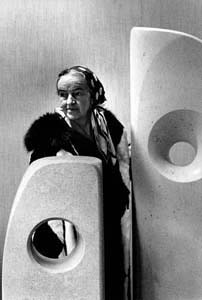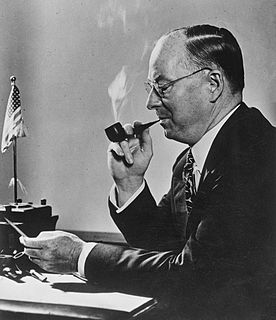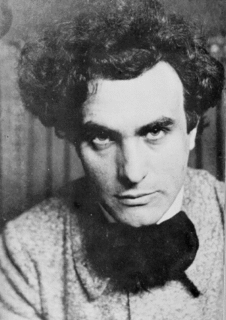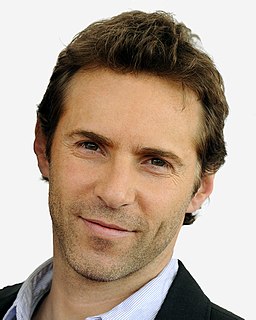A Quote by Barbara Hepworth
Before I start carving the idea must be almost complete. I say 'almost' because the really important thing seems to be the sculptor's ability to let his intuition guide him over the gap between conception and realization without compromising the integrity of the original idea; the point being that the material has vitality - it resists and makes demands.
Related Quotes
We must drop the idea that change comes slowly. It does ordinarily - in part because we think it does. Today changes must come fast; and we must adjust our mental habits, so that we can accept comfortably the idea of stopping one thing and beginning another overnight. We must discard the idea that past routine, past ways of doing things, are probably the best ways. On the contrary, we must assume that there is probably a better way to do almost everything. We must stop assuming that a thing which has never been done before probably cannot be done at all.
Man offers himself to God. He stands before Him like the canvas before the painter or the marble before the sculptor. At the same time he asks for His grace, expresses his needs and those of his brothers in suffering. Such a type of prayer demands complete renovation. The modest, the ignorant, and the poor are more capable of this self-denial than the rich and the intellectual.
To teach effectively a teacher must develop a feeling for his subject; he cannot make his students sense its vitality if he does not sense it himself. He cannot share his enthusiasm when he has no enthusiasm to share. How he makes his point may be as important as the point he makes; he must personally feel it to be important.
People don't understand this: Ideas are important, but they're not essential. What's essential and important is the execution of the idea. Everyone has had the experience of seeing a movie and saying, "Hey! That was my idea!" Well, it doesn't mean anything that you had that idea. There's no such thing as an original concept. What's original is the way you re-use ancient concepts.
The idea of, say, the compressed space between the floor and the object hanging over it and then the long space between the object and the ceiling was a kind of interesting idea for me - the idea of compressing and expanding. That was an idea that I worked with, which you could only do sculpturally. You can't really do with a painting on the wall.
If you look at items of clothing like denim or polo shirts, they came from someone else's idea and everyone now makes them, but even so, I sometimes want to buy into the newer thing because it looks good or whatever. I mean, I copy many things - almost everything I do could be called a copy in some way. But I copy with a certain respect. I have a high regard for the original, and so I want to put my twist onto that. It's just like sampling music - when it's done well, the new work communicates a respect for the original source material.
The vitality of thought is in adventure. Idea's won't keep. Something must be done about them. When the idea is new, its custodians have fervour, live for it, and, if need be, die for it. Their inheritors receive the idea, perhaps now strong and successful, but without inheriting the fervour; so the idea settles down to a comfortable middle age, turns senile, and dies.
Woodrow Wilson was the president of the United States in 1920, and he was made a fool of - his wife almost divorced him - because he wouldn't support women's suffrage. He was president during World War I, but I look back upon him as a coward. Because he knew the right thing to do - the right of women to vote was an idea whose time had come a long time before then, when a lot of women were put into prison or persecuted because they fought for it.
You know, an idea is just an idea. There seems to... the kind of epiphanies that you have, like the little sudden bursts of light, they're very small and they're very short and it's the pursuit of the idea that's the important thing. . . . I know a lot of people who have way better ideas than I do that-much more frequently than I do that just can't sit down and actually do it. Ideas are such are a little overrated really; it's the work behind the idea that's the important thing.
Barry Levinson is such a deceptive director, because he seems really lackadaisical. I'd never worked with him before, and I almost got the impression that he didn't really care that much because he was so laid-back. Sometimes we'd finish filming hours before the day was over, which is just unthinkable in any other film experience I've had. I couldn't believe that Barry had the passion for it.








































